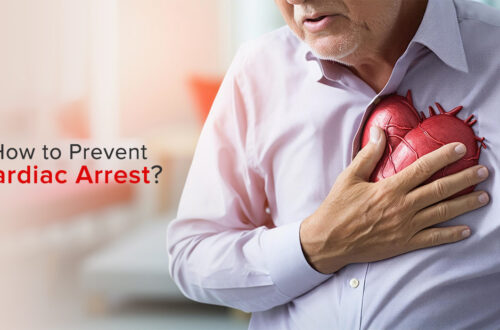Many Signs You Might Need a Cardiologist
Is it time to have a candid conversation with a cardiologist? Did you know there are signs you might need a cardiologist? Heart issues are often associated with obvious symptoms like chest pain, but recognizing the more subtle signs can lead to early intervention and potentially life-saving care.
Here are five critical questions to consider:
- Are you experiencing any of these physical symptoms? According to Dr. Heather Swales, cardiologist at The Hospital of Central Connecticut, while chest pain and difficulty breathing are typical signs of heart disease, there are other symptoms to watch for:
- Irregular or rapid heartbeats
- Persistent swelling in both legs
- Episodes of dizziness or fainting
- Unexplained fatigue
- Did any of your immediate family members develop heart disease before a certain age? Having a parent, sibling, or child diagnosed with heart disease at a younger age — before 55 for men and before 65 for women — indicates a higher risk.
“If you have a first-degree relative who developed heart disease within these age ranges, it’s advisable to consult a cardiologist,” advises Dr. Swales.
- Do you snore? Snoring can sometimes indicate sleep apnea, a condition that strains the heart and increases the risk of cardiovascular diseases. Untreated sleep apnea is linked to high blood pressure, abnormal heart rhythms, stroke, coronary artery disease, and heart failure. A sleep study can help determine if snoring is related to sleep apnea, warranting a visit to a cardiologist.
- For women, did you have complications during pregnancy? Surprisingly, obstetric history can influence cardiovascular risk later in life. Complications such as pre-eclampsia, gestational hypertension, gestational diabetes, late trimester miscarriages, and infertility issues can all increase the risk of heart disease.
- Do you have any of these additional risk factors? The presence of these factors further necessitates consultation with a cardiologist:
- Tobacco use
- Sedentary lifestyle
- Diabetes
- High cholesterol
- High blood pressure
If you answered “yes” to any of these questions, seeking guidance from a cardiologist can provide insights into reducing your risk of heart disease and determining appropriate screening tests.
“Consulting with a cardiologist can empower you to adopt strategies to mitigate heart disease risks and identify necessary screenings,” emphasizes Dr. Swales. Ultimately, addressing these concerns through proactive medical care can lead to better health outcomes and peace of mind.
Having a heart-to-heart with a cardiologist often results in a clearer path forward towards optimal heart health and overall well-being.
Here are additional signs and insights that indicate it might be time to consult with a cardiologist:
- Chest Discomfort or Pressure: While chest pain is well-known, discomfort, pressure, or tightness in the chest that comes and goes, especially during physical activity or stress, can also indicate heart issues. This discomfort may not be severe but shouldn’t be ignored.
- Shortness of Breath: Persistent or worsening shortness of breath, especially without exertion, could be a sign of heart failure or other cardiovascular conditions. It’s essential to differentiate between shortness of breath from other causes like lung issues.
- Swollen Ankles or Legs: Swelling in the lower extremities, particularly if it’s persistent and not related to injury, could indicate heart failure. The heart’s inability to pump blood effectively can lead to fluid buildup in the body.
- Palpitations: Feeling like your heart is racing, fluttering, or skipping beats intermittently can suggest arrhythmias or irregular heart rhythms. While occasional palpitations may not be concerning, frequent or persistent episodes warrant evaluation.
- Cyanosis or Blue Tinted Skin: Bluish discoloration of the skin, especially on the lips, fingers, or toes, can indicate poor circulation or low oxygen levels in the blood, potentially due to heart problems.
- Chronic Fatigue: Feeling unusually tired or fatigued, even after adequate rest, may be a sign of heart disease. This fatigue can be debilitating and may not improve with rest or sleep.
- Cognitive Decline or Confusion: Sudden onset of confusion, memory loss, or difficulty concentrating, especially in older adults, can sometimes be linked to insufficient blood flow to the brain due to cardiovascular issues.
- Family History of Sudden Cardiac Death: If a family member experienced sudden cardiac death or unexplained deaths at a young age, it could indicate a genetic predisposition to certain heart conditions. Genetic testing and early screening may be advisable.
- Persistent High Blood Pressure: High blood pressure that remains consistently elevated despite lifestyle changes and medications may require a cardiologist’s expertise to manage effectively and prevent complications.
- Diabetes with Poorly Controlled Blood Sugar Levels: Diabetes increases the risk of heart disease significantly. Poorly controlled blood sugar levels over time can lead to damage to the heart and blood vessels, necessitating cardiac monitoring and management.
Consulting a cardiologist for these signs ensures comprehensive evaluation, appropriate diagnostics, and personalized management to optimize heart health and prevent serious cardiovascular events.
Early intervention and lifestyle modifications can significantly reduce the risk of developing heart disease or its complications.
Benefits of Eating Strawberries
Benefits of Eating Pomegranate

A graduate of Computer Science and Information Management Technology. Diploma – Caregiving, Certificates – Dementia and Diabetes Awareness and Management. A researcher, blogger, songwriter, singer and acoustic guitarist. Born in an environment where natural talents such as healing are imparted at our natural birth. This natural talents of healing is the result of our genetic inheritance and the training from family environment.














